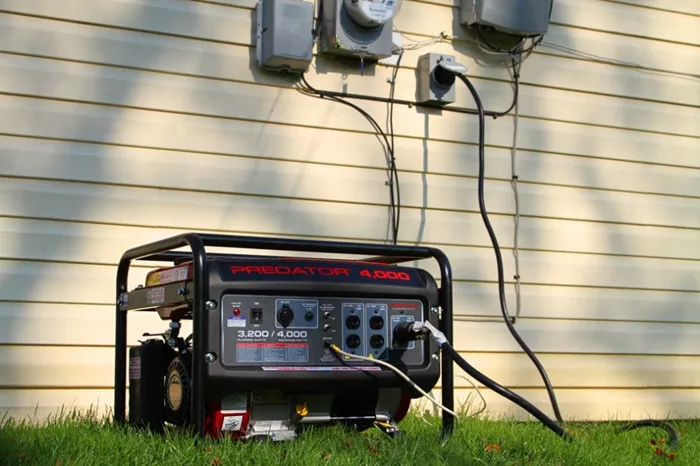Generac home generators are reliable backup power solutions designed to keep your home running during power outages. Understanding how these generators are powered helps homeowners make informed decisions about installation, maintenance, and fuel choices. This article explores the different power sources for Generac generators, their working mechanisms, and key electrical principles involved.
How Generac Home Generators Work
Generac home generators are standby systems that automatically activate when a power outage occurs. They operate using an internal combustion engine, similar to a car engine, but instead of moving a vehicle, they turn an alternator to produce electricity.
Key Components
Engine : The core of the generator, usually powered by natural gas, propane, or diesel.
Alternator : Converts mechanical energy from the engine into electrical energy.
Transfer Switch : Safely disconnects the home from the utility grid and connects it to the generator.
Control Panel : Monitors power demand and manages generator operation.
When the main power supply fails, the generator’s control system detects the outage and signals the engine to start. The alternator then generates electricity, which is distributed through the transfer switch to power essential home circuits.
Power Sources for Generac Home Generators
Generac generators can be powered by different fuels, each with advantages and considerations.
Natural Gas-Powered Generators
Natural gas is a common fuel choice because it is supplied through utility lines, ensuring a continuous supply.
How It Works:
- The generator connects to the home’s natural gas line.
- When activated, gas flows into the engine, where it mixes with air and ignites.
- Combustion drives the engine, spinning the alternator to generate electricity.
Pros:
- No need for refueling (as long as gas supply is uninterrupted).
- Cleaner burning than diesel or gasoline.
- Lower operating costs in areas with affordable natural gas.
Cons:
- Dependent on utility gas supply (may fail in natural disasters).
- Produces slightly less power compared to diesel.
Propane-Powered Generators
Propane is stored in tanks, making it a good option for homes without natural gas access.
How It Works:
- Propane is stored in a pressurized tank.
- The generator draws propane vapor, which is burned in the engine.
- The alternator converts mechanical energy into electricity.
Pros:
- Long shelf life (does not degrade like gasoline).
- Can be stored in large tanks for extended outages.
- Cleaner emissions than diesel.
Cons:
- Requires periodic refilling of propane tanks.
- Higher fuel cost compared to natural gas.
Diesel-Powered Generators
Diesel generators are less common for residential use but are highly efficient.
How It Works:
- Diesel fuel is injected into the engine under high pressure.
- Compression ignition (no spark plugs needed) powers the engine.
- The alternator produces electricity.
Pros:
- High fuel efficiency.
- Longer engine lifespan due to robust construction.
- Better for heavy-duty or prolonged use.
Cons:
- Noisier and produces more emissions.
- Requires fuel storage and regular maintenance.
Electrical Principles Behind Generac Generators
Understanding basic electrical concepts helps in choosing the right generator.
Voltage & Frequency Regulation
Generac generators maintain a stable 120/240V output at 60Hz (in the U.S.). Voltage regulators ensure consistent power to prevent damage to appliances.
Automatic Transfer Switch (ATS) Operation
The ATS is crucial for safety:
- Detects power loss in milliseconds.
- Disconnects the home from the grid to prevent backfeeding.
- Engages the generator within seconds.
Load Management Technology
Modern Generac generators use smart load management to prioritize essential circuits (e.g., refrigerators, medical equipment) during high demand.
Choosing the Right Generac Generator
Factors to consider:
- Fuel availability (natural gas, propane, or diesel).
- Power requirements (calculated by adding wattage of essential appliances).
- Installation and maintenance needs (professional setup recommended).
Conclusion
Generac home generators provide reliable backup power using natural gas, propane, or diesel. Understanding their power sources, working mechanisms, and electrical principles ensures optimal performance and safety. Whether you prioritize convenience, cost, or efficiency, Generac offers solutions tailored to different home needs.
By selecting the right fuel type and properly maintaining the system, homeowners can enjoy uninterrupted power during outages. For best results, consult a certified electrician or Generac dealer to determine the ideal generator for your home.

